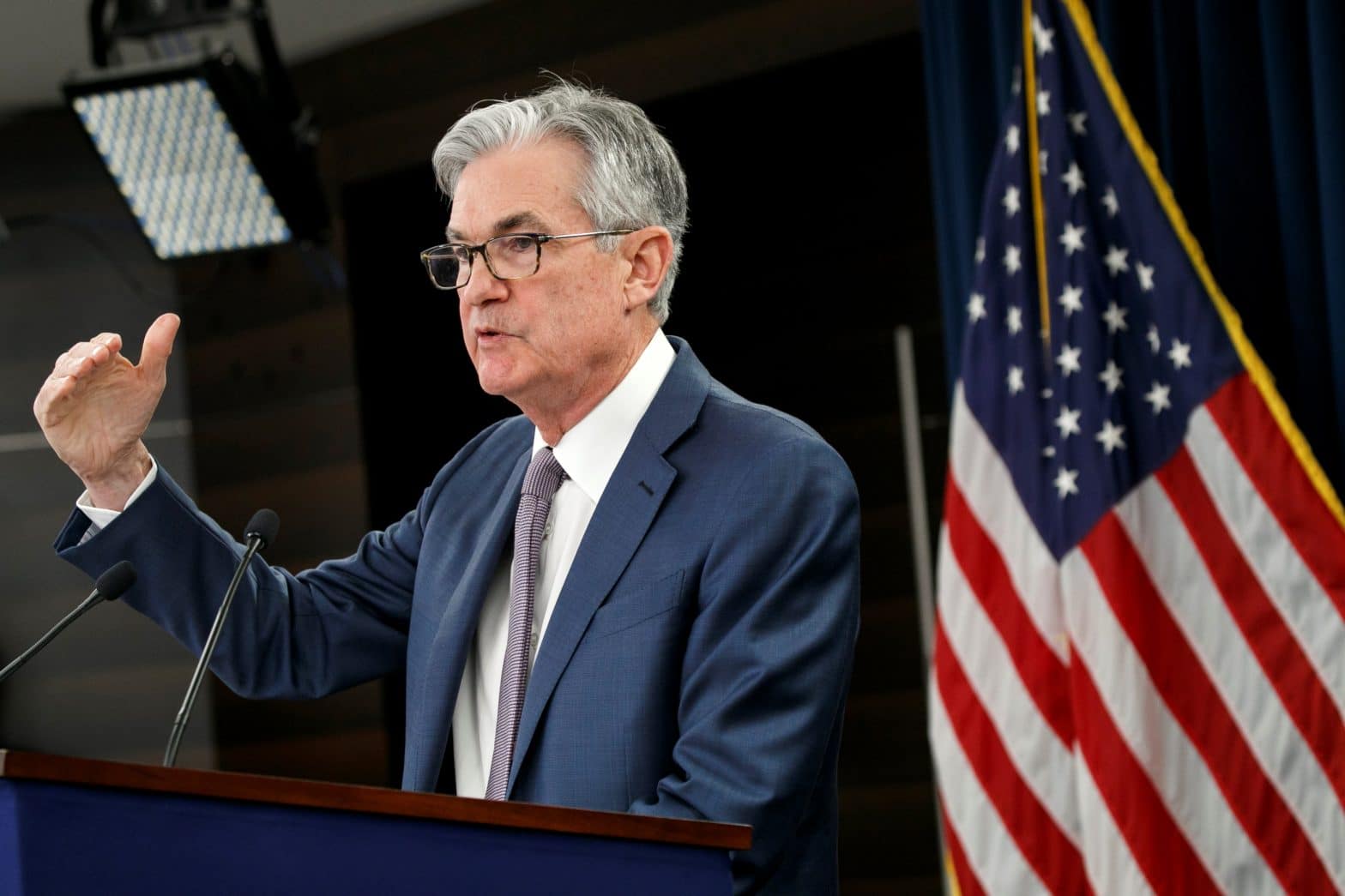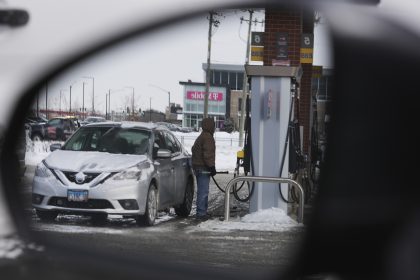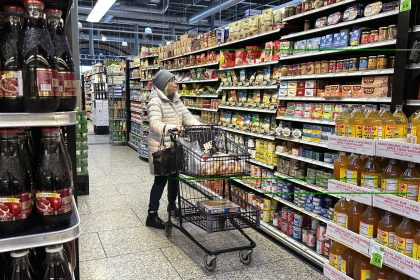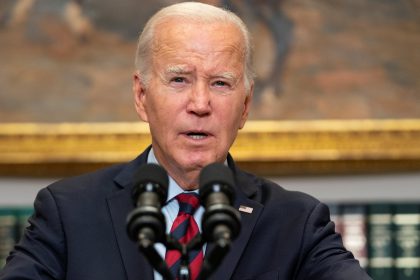Economy Last Quarter Was Worst in US History, Shrinking 32.9%

WASHINGTON – The U.S. economy shrank at an annual rate of 32.9% in the second quarter — the worst quarterly decline ever — amid a coronavirus pandemic that shuttered businesses and threw millions out of work.
The Commerce Department’s estimate of the second-quarter decline in the gross domestic product, the total output of goods and services, marked the sharpest such drop on records dating to 1947.
The previous worst quarterly contraction, a 10% drop, occurred in 1958 during a sharp, global recession in the waning years of the Eisenhower administration.
Considered the most significant recession of the post-World War II boom between 1946 and 1970, the 1958 recession was triggered by a tightening of U.S. monetary policy in a bid to curb inflation. However, prices continued to rise and the strong U.S. dollar contributed to a foreign trade deficit.
If there is a silver lining to the story of that downturn it’s that the recession was of relatively short duration. By the end of 1958, the economy was heading toward new highs in employment and productivity.
Last quarter’s drop followed a 5% fall in the January-March quarter, during which the economy officially entered a recession triggered by the coronavirus, ending an 11-year economic expansion that began during the Obama administration, the longest on record in the United States.
The contraction in the spring was driven by a deep pullback in consumer spending, which accounts for about 70% of economic activity.
Spending by consumers dropped at a 34.6% annual rate during the weeks Americans were urged to stay at home and social distance, and nonessential businesses like bars, entertainment venues and retail establishments were ordered to close.
Economists had predicted that the U.S. would see a V-shaped recovery beginning this summer, but as coronavirus cases surged in a majority of states, that confidence has abated.
On Wednesday, Federal Reserve Chair Jerome Powell warned that the pandemic is endangering the modest economic recovery that followed a collapse in hiring and spending this spring.
As a result, he said, the Fed plans to keep interest rates pinned near zero well into the future.
Speaking at a virtual news conference after a two-day Fed meeting ended, Powell went on to say the faltering economy and resurgence of the coronavirus has heightened the need for Congress to continue providing significant financial aid.
Members of the House and Senate are negotiating a new package but are not yet near agreement. Senate Republicans and the White House are proposing a plan that would provide less help for unemployed Americans than they are now receiving.
Powell said the economy had rebounded after nearly all states lifted their broad business shutdown measures in May. But since then, he noted, as new confirmed cases have soared, measures of spending and hiring have slipped or plateaued at low levels.
“Now that the cases have spiked again, the early data … suggest that there is a slower pace of growth at least for now,” he said. “We don’t know how deep or for how long it will be.”
Last quarter, besides consumer spending, business investment and residential housing also posted sharp declines, with investment spending sinking 27% and residential housing tumbling 38.7%.
State and local government spending, bruised by a loss of tax revenue that forced layoffs, also fell at an annual rate of 5.6%. But overall government spending was up 2.7%, powered by a 17.4% surge in federal spending, reflecting the $2 trillion-plus in relief aid that Congress enacted to provide $1,200 payments to individuals, help to small businesses and supplemental unemployment benefits.
Erik Lundh, senior economist at The Conference Board, a Washington, D.C.-based non-profit, said in light of the rapid spread of the virus over the summer and its impact on several states, it is no longer clear economic activity will significantly improve in the near-term.
“We anticipate some recovery in the second half of 2020, but do not expect the economy to reach pre–COVID-19 output levels until 2021 at the earliest,” he said. “The Conference Board presently has three distinct scenarios for US economic growth in 2020, ranging from a ‘swoosh’-shaped fall recovery scenario (yielding annual GDP growth of −6.4%) to a more daunting ‘W’-shaped scenario (yielding annual GDP growth of −7.2%).”
Clarence Anthony, CEO and executive director of the National League of Cities also responded to Thursday’s report, saying its “devastating” depiction of the second quarter contraction of the U.S. economy underscores what local leaders and economists have been warning for months — that “our national economic recovery will stall without significant investment in our communities.
“The economic picture is bleak, the reality on the ground is grim and any hope of a quick economic recovery will be a pipe dream unless Congress provides direct federal assistance to cities, towns and villages on the front lines.” Anthony said.
He continued: “Facing more than $360 billion in projected revenue shortfalls over the next three years, our cities have already begun to lay off essential employees, cancel job-creating infrastructure projects, and reduce the services that support the operation and growth of small businesses in their communities. Make no mistake: the economic pain our country finds itself in today will only grow more acute if Congress does not make a serious commitment to deliver direct federal aid to local governments. … Every day wasted prolongs the economic pain caused by COVID-19.”
In other economic news, more than 1.4 million laid-off Americans applied for unemployment benefits last week.
The Labor Department’s report Thursday marked the 19th straight week that more than 1 million people have applied for unemployment benefits.
Before the coronavirus hit hard in March, the number of Americans seeking unemployment checks had never exceeded 700,000 in any one week, even during the Great Recession.
The number of new applicants was up by 12,000 from the week before, the second straight increase. New claims had dropped for 15 straight weeks, from mid-April through early July, as states began to reopen their economies, a move that is now stalling.
Seventeen million Americans are now collecting unemployment benefits.
House Speaker Nancy Pelosi said Thursday the two bracing reports should serve as a wake up call to Senate Republicans and get them moving more quickly on the next coronavirus relief package.
“Ten weeks after House Democrats passed The Heroes Act to defeat the coronavirus and safely reopen the economy, Senate Republicans’ ongoing delay continues to wreak its deadly toll on the lives and livelihoods of the American people,” Pelosi said.
“Millions of America’s children are food insecure. Families are on the verge of eviction. Tens of millions of Americans have applied for Unemployment Insurance, with more than 1 million people applying each week for 19 weeks straight. Nearly 4.5 million Americans have been infected, and 150,000 are tragically dead,” the speaker said.
“Disaster is on America’s doorstep,” Pelosi continued. “As Federal Reserve Chairman Jerome Powell said yesterday, ‘The path forward for the economy is extraordinarily uncertain and will depend in large part on our success in keeping the virus in check … This pandemic and its fallout really represents the biggest shock to the U.S. economy in living memory.'”
“Republicans need to get serious immediately, and work with Democrats to save lives and livelihoods during this devastating time,” she said.
























